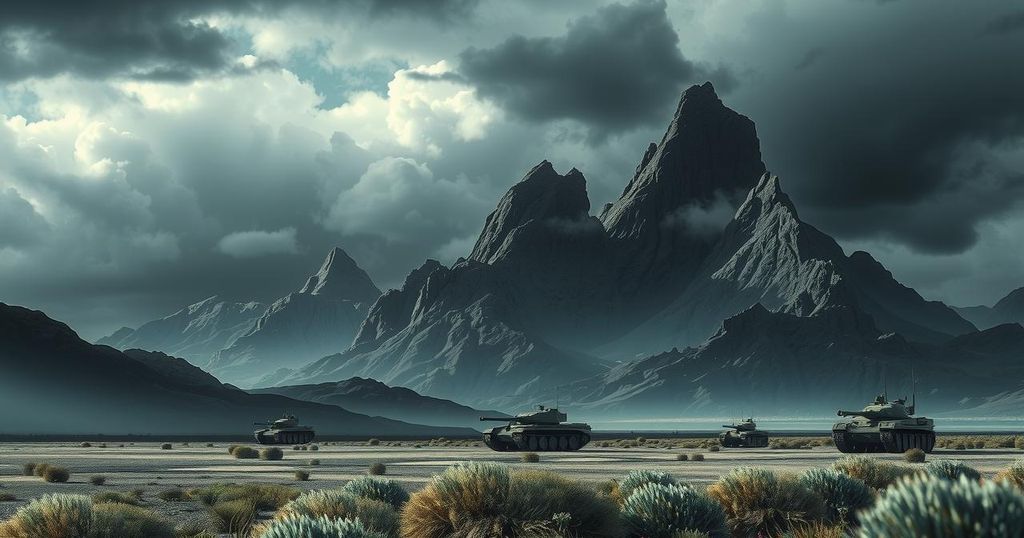M23 Rebels Renew Offensive in Eastern DRC Amidst Rising Casualties

M23 rebels, backed by Rwanda, have launched a new offensive in eastern DRC, coinciding with a summit between the Rwandan and Congolese presidents. The UN reports a dramatic increase in fatalities due to conflict, with over 2,900 dead in Goma. Despite claims of a ceasefire, fighting has intensified as local populations call for peace amid fears of broader regional instability.
The M23 rebel group, supported by Rwandan military forces, has initiated a fresh offensive in the eastern Democratic Republic of Congo (DRC) just days before a critical summit involving the leaders of Rwanda and the DRC. This offensive follows the recent capture of Goma and coincides with escalating humanitarian crises due to violent conflicts. According to the United Nations, the death toll from the battles in Goma has tragically soared to at least 2,900, a significant increase from previous reports.
The offensive resumed after the M23 unilaterally broke a ceasefire that had recently been declared and was set to take effect shortly. M23 rebels and Rwandan troops rapidly took control of a mining town in the South Kivu province and are advancing towards Bukavu, the provincial capital. This disregard for the ceasefire prompted Congolese government spokesman Patrick Muyaya to denounce the ceasefire announcement as a deceitful maneuver.
Over three years of conflict between the M23 and the Congolese army have seen numerous ceasefires declared and subsequently violated. Local military sources indicate a reinforcement of troops and equipment by all groups involved, heightening fears of further violence. Goma’s recent fall into the hands of M23 and Rwandan forces underscores the long-standing conflicts over the region’s abundant natural resources.
Vivian van de Perre, the deputy chief of the UN peacekeeping mission in the DRC, revealed in a press conference that 2,000 bodies have been recovered from Goma’s streets, along with an additional 900 fatalities in local hospitals, indicating that the toll may continue to rise. The International Criminal Court is also monitoring the escalating situation with concern.
In Bukavu, citizens gathered for a peaceful prayer service led by local women, expressing their exhaustion from the enduring violence and their desire for peace. As regional leaders prepare for a summit in Dar es Salaam, the UN Human Rights Council will engage in discussions surrounding the crisis, highlighting the international community’s attempt to mediate a resolution.
Despite the efforts of regional bodies and international organizations, DRC’s foreign minister Thérèse Kayikwamba Wagner criticized the global response as ineffective. Concurrently, neighboring countries are reinforcing their defenses to prevent the conflict from spilling over into their territories. Reports from UN experts suggest that Rwanda maintains a significant military presence within the DRC, aiming to utilize the country’s wealth of minerals such as coltan and gold.
The eastern Democratic Republic of Congo has been engulfed in conflict for decades, primarily due to the presence of numerous armed groups vying for control over mineral-rich territories. The M23, a Rwandan-backed rebel faction, has been involved in intermittent warfare against the DRC’s army, leading to repeated declarations of ceasefires that have ultimately failed. Tensions are exacerbated by complex regional dynamics involving Rwanda, which has been accused of directly supporting the M23, despite its denials.
The resurgence of violence in eastern DRC, marked by the M23’s offensive and the significant casualty figures, highlights the persistent instability in the region. Despite international attempts to negotiate peace, the situation remains dire as both the humanitarian crisis grows and regional actors continue to bolster their military preparedness. A coordinated and decisive international response is critical to address the ongoing challenges and to seek a peaceful resolution to the conflict.
Original Source: www.theguardian.com








